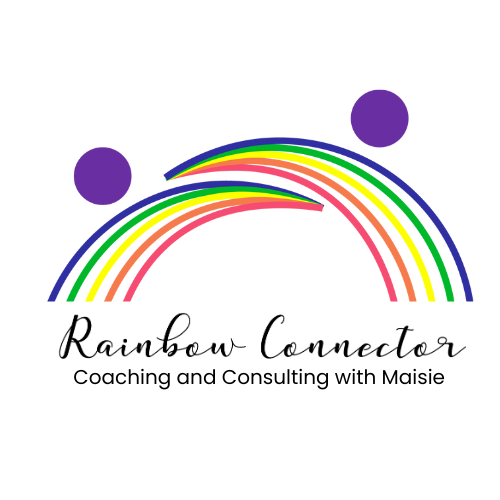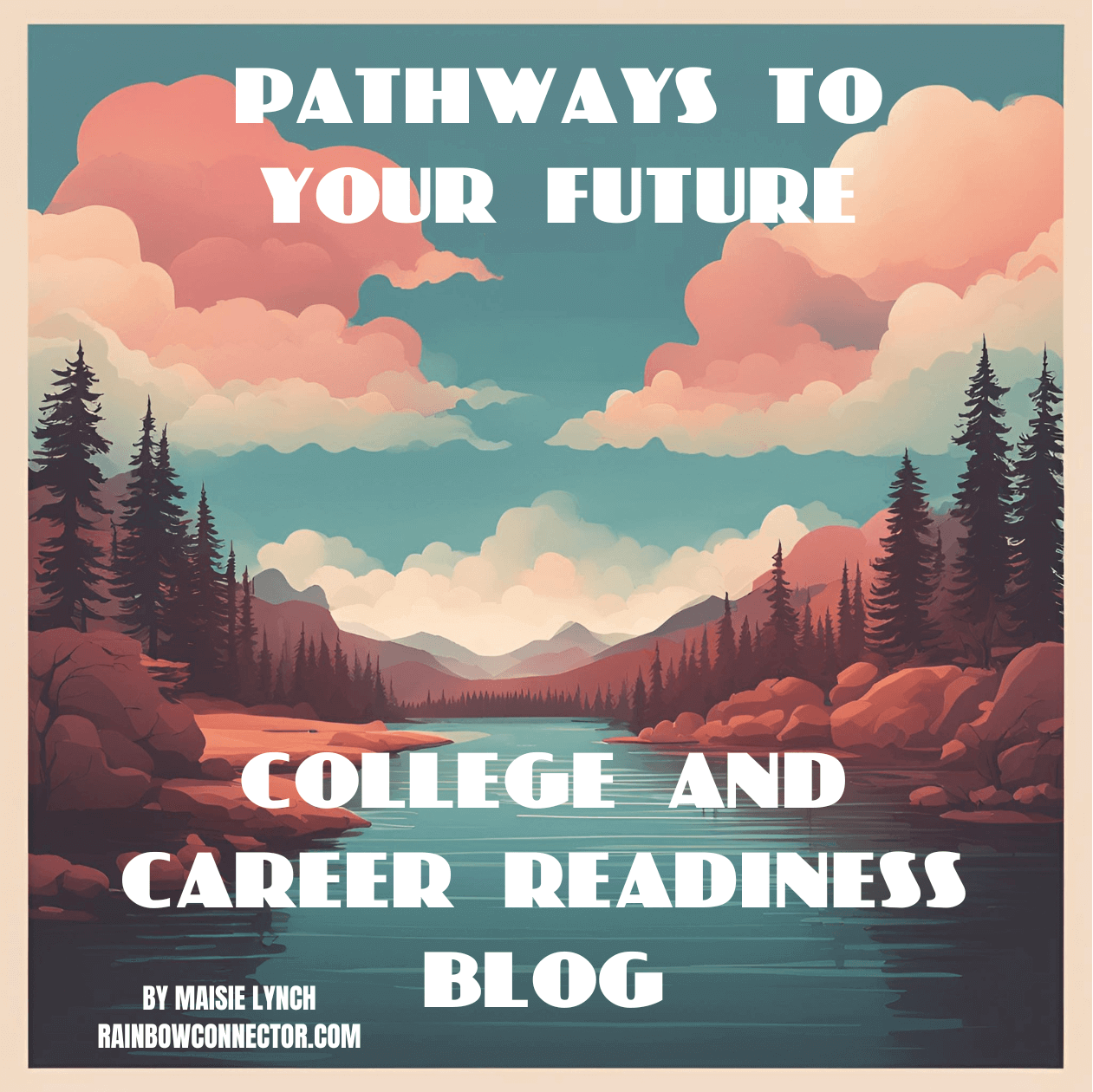
Understanding Neurodiversity
Before delving into the importance of community and trusted adults, let me first talk about neurodiversity so we are all on the same page. First of all, it is important to keep in mind that you will see different definitions and descriptions of neurodiversity depending on which source you use. The terms neurodiverse and neurodivergent are also used interchangeably on many websites.
For the purposes of this post, I will use the definition of neurodiversity that says that neurological differences, such as autism, ADHD, dyslexia, and other conditions, are natural variations of the human brain rather than deficits to be fixed (https://www.health.harvard.edu/blog/what-is-neurodiversity-202111232645). In this way, the term is used to describe the fact that we all think, learn, and behave differently, and have unique strengths and challenges that may require tailored support. We are all neurodiverse.
The term "neurodivergent", by most definitions, is a non-medical term that includes, within the neurodiversity umbrella, individuals with ADHD, Autism, Dyslexia, OCD, Tourette's Syndrome, and other diagnoses. It is meant to describe individuals who differ mentally or neurologically from those that are considered "normal" or "typical". While I am using it to describe people with the diagnoses previously mentioned, I think it's important to note that I am not a fan of the concept of "normal" when it comes to how people think, learn, and behave. Having worked with thousands of students over the last 18 years, I would have a tough time summarizing what "normal" looks like and would lean towards neurodivergence being the norm.
I also recognize that there are different schools of thought regarding how to use the term neurodivergent. Some people think you should say "individuals with neurodivergencies" and others think it should be "neurodivergent individuals". The distinction is important as one mentions the person first and the other mentions the identify first. As the parent of two teens with neurodivergencies, I am a proponent of person first language so I will be using that format primarily but sometimes switch between person first and identity first. I recognize that each person has their own preference. For anyone interested, you can take a deeper dive into the recommended language from the American Psychiatric Association here. Also, here is an article that discusses using person-first versus identity-first language when it comes to autism. The conversation can be had about any neurodivergencies. The biggest takeaway I have from these are that language is always evolving and that it is important to honor the preferences of specific groups as a way to be respectful and to demonstrate professional awareness.
And now for the reason you stopped by in the first place.
The journey from childhood to adulthood is an exciting and challenging one, marked by milestones like graduating from high school and embarking on new adventures. For individuals with neurodivergencies, this journey can be even more complex as they navigate a world that may not always accommodate their unique needs. One key element that can make a profound difference in the lives of all teens, especially during these transitional times, is the presence of a supportive community and a network of trusted adults. In this article, I will explore why having a robust support system is vital for teens and young adults and what caregivers can do to foster that.
The Power of Community
- Inclusion and Acceptance: Community plays a crucial role in creating an inclusive environment where individuals can thrive. It fosters acceptance, understanding, and empathy, providing a safe space for individuals to express themselves without judgment. In such an environment, teens and young adults can develop a sense of belonging and self-worth, which are essential for building confidence and independence. Find activities for your child that are inclusive and supportive and that value and appreciates differences between people.
- Diverse Perspectives: Communities are made up of people from various backgrounds and experiences. Interacting with a diverse group of individuals exposes teens and young adults to different perspectives and ideas, enhancing their social skills and broadening their horizons. This exposure is particularly valuable as they prepare to transition to adulthood and face an even more diverse world. For teens with neurodivergencies, these interactions can provide more "real-world practice" while still providing the safety net of the community. Practice hard conversations at home so that your child will know how to handle them when you are not around. Make sure they have tools they can use when the conversation doesn't go the way they want and when emotions start to run high.
- Shared Resources: Communities often provide either direct or indirect access to resources and services for teens and young adults. Communities that are geared towards working with these age groups (Scouts, school clubs, religious youth groups) may provide direct resources including support groups, educational programs, and job placement services. These resources can be invaluable during transitional periods, helping youth build essential skills and prepare for the challenges ahead. Indirect resources come through the Secondary Community that parents/guardians form when their children are members of a Primary Community. The support and resources shared among parents can be even more important than those directly from the Community. Make sure that when your child is younger, you are engaging with the other caregivers to help make the community even stronger.
The Role of Trusted Adults
- Consistency and Stability: Having trusted adults in their lives provides those with neurodivergencies with consistency and stability. These adults serve as reliable anchors during times of change and uncertainty. When teens know that they can turn to someone they trust for guidance and support, this can alleviate anxiety and help them navigate transitions more smoothly. Help your child to identify who the trusted adults are and when and how they can reach out to them.
- Individualized Support: Each individual is unique, with their own set of strengths and challenges. Trusted adults can offer individualized support, tailoring their guidance to the specific needs of the young person. Whether it's helping with executive functioning skills, time management, or emotional regulation, trusted adults can provide personalized strategies for success. Your child may have some of these people already in their life, if not, work with them on finding someone.
- Building Self-Advocacy: Trusted adults play a vital role in empowering youth with neurodivergencies to become self-advocates. They can teach them how to communicate their needs and preferences effectively, which is essential for success in various aspects of life, from school to employment. Learning self-advocacy skills equips them with the confidence to navigate the adult world independently. At some point your child might stop listening to you, this is totally normal. This is a great time for those trusted adults to step up and help support your child in the the same way that you would.
NOTE: A trusted adult is just that, one who can be trusted. Make sure that all adults in your child's life are vetted. This could be through the school environment, scouting, church, etc. You should never leave a child or teen alone with an adult that has not been vetted. In addition, you should never force your child to have any type of relationship with an adult.
When I talk about trusted adults, I am using the term very specifically to mean adults that have been appropriately vetted which includes having an appropriate background check done and fingerprinting. In addition, they possess the following key characteristics:
- Reliability: Trusted adults are consistent in their behavior and actions, and they can be counted on in times of need.
- Caring and Supportive: They show empathy, care, and concern for the well-being and development of the child or young person.
- Trustworthy: They can be trusted with personal information and are honest in their interactions.
- Safety: Children and adolescents should feel safe and secure when they are around a trusted adult, knowing that they will be protected from harm.
- Guidance and Advice: Trusted adults often provide guidance, advice, and mentorship to help young individuals navigate challenges and make informed decisions.
- Listening: They are willing to listen attentively to the concerns, questions, and thoughts of the child or young person.
- Non-judgmental: Trusted adults create an environment where children and adolescents feel comfortable sharing their thoughts and feelings without fear of harsh judgment.
It is important for children and young people to have access to trusted adults in their lives, as these individuals can play a crucial role in their emotional and social development, as well as their overall well-being. However, it is more important to make sure that any adult your child interacts with treats them appropriately at all times and is trustworthy. There is no magic formula to test someone's intentions so if there is any question at all, do NOT leave your child alone with an adult you do not 100% have trust in.
Navigating High School Graduation
High school graduation is a significant milestone for all students, but it can be especially daunting for those with neurodivergencies. The support of a community and trusted adults becomes crucial during this transitional period.
- Career Exploration: Many teens and young adults may be uncertain about their career paths. Trusted adults, including teachers, mentors, career coaches, and family members, can help them explore their interests, strengths, and potential career options. This guidance is invaluable in making informed decisions about further education or entering the workforce.
- Executive Functioning Skills: Many of us struggle with executive functioning skills, such as time management, organization, and planning. Trusted adults can provide strategies and tools to develop these skills, ensuring that the transition to adulthood is as smooth as possible. For example, setting up routines, creating visual schedules, and using digital tools can all be helpful.
- Emotional Support: The emotional aspect of transitioning to adulthood cannot be overlooked. Youth may experience heightened stress and anxiety during this period. Trusted adults can offer emotional support, providing a listening ear and teaching coping strategies to manage stress and build resilience.
Preparing for the Next Steps
As teens graduate from high school and prepare for the next phase of their lives, whether it's entering college, vocational training, or the workforce, the importance of community and trusted adults remains steadfast.
- College or Vocational Training: Entering higher education or vocational training programs can be overwhelming. Trusted adults can assist in the transition by helping youth choose the right program, apply for accommodations, and develop effective study habits. They can also provide ongoing emotional support to navigate the challenges of this new environment.
- Employment: Finding and maintaining employment can be challenging. Trusted adults can offer guidance on job searching, interview preparation, and workplace etiquette. They can also help establish a supportive network at the workplace and provide ongoing mentorship.
- Independent Living: Moving toward independent living is a significant step in adulthood. Trusted adults can assist with developing essential life skills, such as budgeting, cooking, and maintaining a living space. These skills are fundamental for achieving autonomy and self-sufficiency.
Conclusion
For neurodiverse youth, the journey from high school graduation to adulthood can be both exciting and daunting. However, the presence of a supportive community and trusted adults can make all the difference in their success and well-being. These individuals offer acceptance, guidance, and personalized support, helping youth develop essential executive functioning skills and navigate the challenges of adulthood with confidence. As we recognize the importance of neurodiversity in our society, let us also emphasize the critical role that community and trusted adults play in nurturing the potential of these remarkable individuals.


















0 Comments